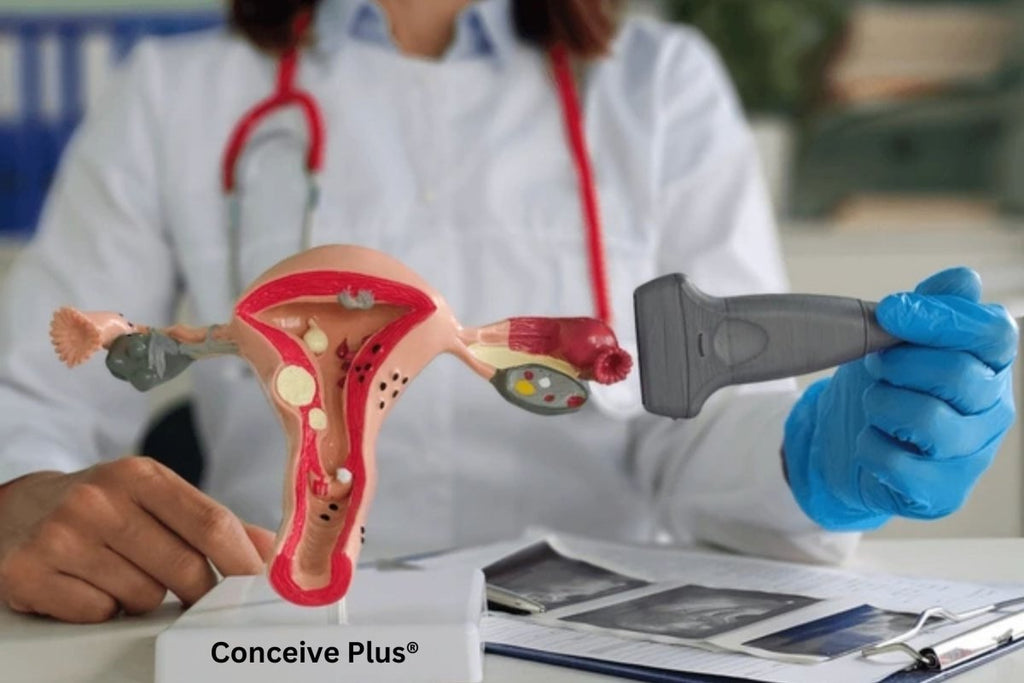Male Fertility Cycle: Do Men Ovulate Like Women?

Women have a monthly fertility cycle and release one reproductive cell, which is an egg, per cycle [1]. Unlike women, men do not have a fertility cycle, and they don't produce reproductive cells only at any specific time of the month.
A male body produces male reproductive cells, which are called sperm cells, continuously without any gap [2]. This allows men to produce millions of sperm daily and stay fertile all the time. Are men always fertile? The process of producing sperm cells is called spermatogenesis, and it is essential for conception [2].
Do Men Ovulate?
People who are aware of the female fertility cycle and don't know much about male fertility often ask questions like, Can men ovulate similarly to women? So if you are curious to know does men ovulate or do guys ovulate, the answer is no — men do not ovulate.
For those who don't know already, ovulation is the process of egg release in the ovaries, which occurs at once during the female fertility cycle, or menstrual cycle [3]. The time of ovulation is considered a fertile window, meaning that the chances of conception are maximum at that time, especially around the peak fertility age.
On the flip side, men produce new sperm every day, which allows men to father children throughout most of their lives. Continuous sperm regeneration is the reason why are men fertile all their lives after puberty.
The Sperm Regeneration Cycle
Men don't have a fertility cycle or fertility window, but they do have a sperm regeneration cycle [2]. The sperm regeneration cycle refers to the process of formation of mature sperm from immature sperm cells.
This cycle takes approximately 64 to 74 days to complete, from the start of sperm production to the point when sperm cells are fully mature and ready for fertilization.
The sperm regeneration cycle happens in the testes and is responsible for a continuous supply of healthy sperm. Each day, the body produces millions of sperm, ready for potential conception. This is why are men always fertile.
Stages of the Sperm Regeneration Cycle
The sperm regeneration cycle, or spermatogenesis, is a male version of ovulation that occurs in multiple stages. These are:
-
Mitosis
Tests contain millions of immature sperm cells at any time which are called spermatogonia [4]. The sperm regeneration cycle begins with the division of spermatogonia.
In the mitosis stage, these cells divide and create additional cells that will eventually develop into mature sperm.
-
Meiosis
In the second step, the new spermatogonia cells undergo meiosis, a special kind of cell division that reduces their chromosome count by half. This stage is important as it prepares the sperm cells for fertilization.
In fertilization, half of the chromosomes from egg and sperm fuse to form a complete chromosome [5]. After the meiosis phase, these cells are called spermatocytes.
-
Early Sperm Cells
After the meiosis stage, the spermatocytes transform into early sperm cells, also called spermatids. Spermatids are still immature and not ready for fertilization at this stage.
-
Maturation
In the next stage, the spermatids undergo a series of changes that make them fully mature. They grow tails to help with movement, and their heads condense to contain essential genetic material [6]. These changes allow sperm cells to reach the egg and fertilize it.
-
Storage in the Epididymis
After the complete cycle of sperm regeneration, the newly formed sperm cells move to the epididymis, where they are stored.
In the epididymis, sperm gain full motility, which means they can swim efficiently to reach the fallopian tube and fertilize an egg. They remain stored here until the person reaches orgasm during sexual intercourse and ejaculates.
How to Promote Healthy Sperm Regeneration?
Sperm regeneration is a natural process in males that starts at puberty and continues throughout the man's life. You can support the sperm regeneration process through a balanced diet, regular exercise, and managing stress.
Avoiding smoking, limiting alcohol, and minimizing your exposure to harmful chemicals can also improve sperm quality and overall reproductive health.
If you are concerned about your fertility status when trying to conceive, it is always a good idea to share your condition with a fertility specialist for a detailed evaluation of your reproductive health. This way you can get personalized advice based on your reproductive health.
The Bottom Line
Men don't ovulate or produce reproductive cells once a month like women. Instead, they produce millions of sperm cells daily through spermatogenesis in the testes. This is why the male fertility cycle isn't limited to a certain period; men stay fertile all the time after puberty.
Men can improve the sperm regeneration process by eating essential nutrients in their diet, staying physically active, and avoiding poor lifestyle habits such as smoking and alcohol consumption.
Resources Used
- Thiyagarajan, D. K., Basit, H., & Jeanmonod, R. (2024, September 27). Physiology, Menstrual Cycle. StatPearls - NCBI Bookshelf. https://www.ncbi.nlm.nih.gov/books/NBK500020/
- Suede, S. H., Malik, A., & Sapra, A. (2023d, March 6). Histology, Spermatogenesis. StatPearls - NCBI Bookshelf. https://www.ncbi.nlm.nih.gov/books/NBK553142/
- Professional, C. C. M. (2024h, May 1). Ovulation. Cleveland Clinic. https://my.clevelandclinic.org/health/articles/23439-ovulation
- Kubota, H., & Brinster, R. L. (2018). Spermatogonial stem cells†. Biology of Reproduction, 99(1), 52–74. https://doi.org/10.1093/biolre/ioy077
- Oliver, R., & Basit, H. (2023d, April 17). Embryology, Fertilization. StatPearls - NCBI Bookshelf. https://www.ncbi.nlm.nih.gov/books/NBK542186
- Mortimer, D. (2018). The functional anatomy of the human spermatozoon: relating ultrastructure and function. Molecular Human Reproduction. https://doi.org/10.1093/molehr/gay040













